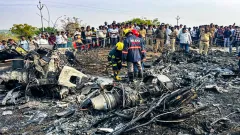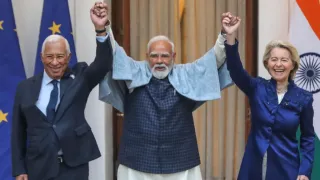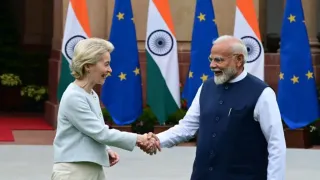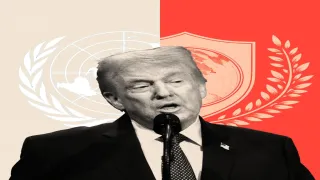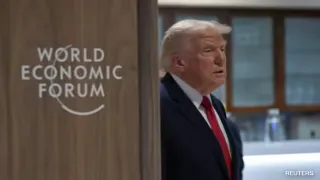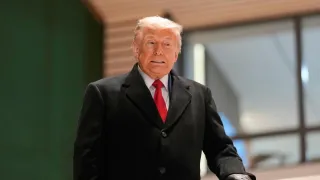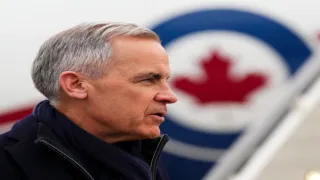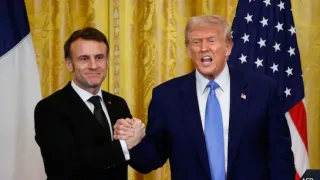India has renewed its strategic commitment to the Indo-Pacific region with Defence Minister Rajnath Singh’s latest proposal at the ASEAN-India Defence Ministers’ Informal Meeting held in Kuala Lumpur. Singh called for the creation of an institutional forum linking defence think tanks from India and ASEAN nations to foster deeper dialogue, policy collaboration, and capacity building in the face of evolving regional security challenges. The proposal underscores India’s vision for a rules-based, cooperative, and inclusive Indo-Pacific region, rooted in ASEAN centrality and mutual trust.
The Defence Minister’s announcement came amid increasing geopolitical flux in the Indo-Pacific, where maritime security, trade routes, and strategic alliances play pivotal roles in shaping the global order. Singh emphasized that the proposed forum would not only strengthen intellectual collaboration between defence experts and academics but also provide a structured mechanism for addressing shared challenges. By involving leading strategic institutions from across ASEAN countries, the forum aims to build a knowledge-based bridge for defence cooperation and policy innovation.
Reaffirming India’s long-standing partnership with ASEAN, Singh highlighted the organization’s central role in maintaining regional stability. He noted that both India and ASEAN have experienced robust economic growth, and the two regions share a commitment to peace, progress, and prosperity. The minister’s speech served as both a diplomatic reassurance and a strategic call to action for deeper defence and economic engagement in a rapidly changing world.
India’s Proposal for a Defence Think-Tank Forum
During his address, Rajnath Singh proposed the establishment of an institutional forum that would bring together defence think tanks, scholars, and policymakers from India and ASEAN member states. The forum, according to Singh, would promote meaningful dialogue, joint research, and knowledge exchange. “Today, we are sharing a concept note for this proposed forum,” he stated, inviting ASEAN nations to nominate their leading defence research institutions and experts.
He emphasized that such a platform would create opportunities for collaborative policy studies and strategic planning, enhancing mutual understanding of emerging security threats. Singh expressed confidence that the initiative would generate new ideas to support regional stability and innovation in defence policy-making. This proposal is part of India’s broader vision to strengthen its Act East Policy and ensure that ASEAN remains a key partner in shaping the Indo-Pacific architecture.
ASEAN’s Central Role and India’s Strategic Commitment
Rajnath Singh reaffirmed India’s unwavering commitment to ASEAN’s centrality in regional affairs. “In today’s uncertain world, where many old beliefs and expectations are changing, the ASEAN-India relationship will remain a strong pillar of stability,” he said. This statement reflects India’s diplomatic approach of positioning ASEAN as a vital partner in ensuring peace and balance in the Indo-Pacific region.
India’s engagement with ASEAN is built on decades of cooperation, covering defence, trade, culture, and connectivity. Singh’s remarks also included a call for the early completion of the review of the ASEAN-India Trade in Goods Agreement (AITIGA), which would boost economic integration and mutual growth. This highlights New Delhi’s view that economic and security cooperation are interdependent pillars of sustainable regional prosperity.
Focus on Maritime Security and the Indo-Pacific
One of the central themes of Singh’s address was maritime security. He emphasized that the seas connecting India and Southeast Asia form the backbone of regional trade and stability. “Maritime security is a central focus of India-ASEAN engagement,” he said, acknowledging ASEAN member states for agreeing to hold the second edition of the ASEAN-India Maritime Exercise.
He underlined the strategic importance of sea lanes such as the South China Sea and the Strait of Malacca, through which more than half of India’s trade passes. India’s stance, Singh reiterated, aligns with a rules-based maritime order grounded in the principles of the United Nations Convention on the Law of the Sea (UNCLOS). He stressed peaceful dispute resolution and freedom of navigation as non-negotiable elements of Indo-Pacific stability. The emphasis on maritime cooperation reflects India’s growing role as a security provider and advocate for open, secure sea routes in the region.
Advancing Women’s Roles in Peacekeeping
Another major announcement by Singh centered around women’s participation in peacekeeping operations. He proposed the second edition of the ASEAN-India Initiative for Women in UN Peacekeeping Operations, reflecting India’s commitment to gender equality in defence and diplomacy. “This time too, it will be conducted in two phases,” he explained, adding that the first phase will include specialized training for women military officers, while the second will feature a table-top exercise focusing on the protection of civilians and the role of women peacekeepers.
The initiative highlights India’s belief that empowering women in peacekeeping not only strengthens operational effectiveness but also enhances the humanitarian and community dimensions of peace missions. ASEAN countries have shown keen interest in the initiative, recognizing it as an important step toward inclusive leadership and diversity in security forces.
Building Stronger Indo-Pacific Partnerships
Singh’s speech emphasized that India’s cooperation with ASEAN is part of a larger Indo-Pacific vision that prioritizes partnership, inclusivity, and shared prosperity. By encouraging collaboration among think tanks and defence experts, India seeks to contribute to a common understanding of regional threats such as maritime piracy, terrorism, and non-traditional security challenges like cyber warfare and climate-related risks.
The proposed forum is also expected to promote greater coordination in humanitarian assistance and disaster relief (HADR) operations, areas where ASEAN and India have already cooperated successfully. As maritime nations, both sides recognize that their futures are intertwined through the Indo-Pacific’s vast maritime domain, and collective action is crucial for maintaining stability.
Inviting ASEAN to Upcoming Naval Engagements
In a gesture of friendship and partnership, Rajnath Singh invited ASEAN nations to participate in upcoming joint maritime activities. “I look forward to the participation of all ASEAN member states in the ASEAN-India Maritime Exercise and the International Fleet Review 2026, to be held in India,” he said. The minister thanked Malaysia for hosting the meeting and commended ASEAN’s consistent engagement in strengthening regional cooperation mechanisms.
These naval exercises will further deepen military-to-military engagement, improve interoperability, and enhance trust among regional navies. They also reflect India’s growing confidence as a maritime power capable of leading initiatives that promote security and peace in the Indo-Pacific region.
Strengthening Global Defence Partnerships
On the sidelines of the ASEAN meeting, Singh met with U.S. Secretary of War Pete Hegseth, where both leaders signed a 10-year “Framework for the U.S.-India Major Defence Partnership.” The agreement aims to enhance cooperation in defence manufacturing, technology transfer, and joint military exercises. Singh described the meeting as “fruitful” and said the framework “will usher in a new era in our already strong defence partnership.”
This bilateral engagement complements India’s broader Indo-Pacific strategy, reinforcing its position as a trusted and responsible partner in global defence collaboration. The convergence of India’s ties with both ASEAN and the U.S. underscores the country’s growing influence in shaping regional and global security policies.
A Vision for a Peaceful, Secure Indo-Pacific
In his closing remarks, Singh reiterated India’s long-term commitment to peace, stability, and inclusive growth in the Indo-Pacific. He emphasized that India’s partnerships are based on mutual respect and shared values, not competition or confrontation. “Our goal is to build a free, open, and prosperous Indo-Pacific that benefits all nations,” he said.
Singh’s proposal for a defence think-tank forum symbolizes a forward-thinking approach to diplomacy—one that values collaboration, knowledge exchange, and inclusive security dialogue. As ASEAN and India continue to align their interests, this initiative could become a cornerstone of future regional security frameworks, ensuring that the Indo-Pacific remains peaceful, prosperous, and rules-based for generations to come.
Also Read: Kerala Enters New Era as CM Vijayan Ends Extreme Poverty









